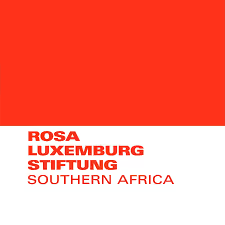Rosa Luxemburg’s theory of Imperialism continues to have resonance in contemporary debates on imperialism and struggles for socialism, in the 21st century. In summarizing Luxemburg’s theory of imperialism, Samir Amin points out, that Luxemburg argued that capitalist accumulation, which happens through the realization of surplus value, implies relations of exchange between capitalist societies on one hand and pre-capitalist social formations on the other. In other words, she concluded that the (fully develop ed capitalist) centers and the (incompletely developed capitalist) peripheries formed two groups necessarily associated through all stages of capitalist expansion, which is an accumulation by dispossession.
Luxemburg is undoubtedly a pioneering thinker of capitalism as essentially a global system. Tadeusz Kowalik is correct when he asserts that The Accumulation of Capital by Luxemburg is a thorough study of connections and contradictions between developed economies and what today is called The Third World. For Luxemburg this was a fertile soil for wars, revolutions, or at least for a permanent instability of the world economy. After more than a century of bitter experiences of global polarization and unequal development between centers and peripheries, there are not many political and economic analysts who would deny that these questions continue to be of utmost importance.
Helen Scott observes that Rosa Luxemburg is one of the most significant political figures of the 20th century: she developed an analysis of imperialism that apprehended not only its economic and political, but also its social, cultural, and human dimensions; she resolutely opposed capitalist militarism; she was a leading theorist and strategist; and she was an activist, from her first party work among miners in upper Silesia, through her speaking tours to mass crowds after the 1905 Russian revolution, to her agitation among revolutionary workers on the streets in the final days of her life.
This contribution discusses Rosa Luxemburg’s theory of accumulation and imperialism, and reconstructs Luxemburg’s relevance to today’s struggles for a socialist path in South Africa, as a country in the periphery of the global capitalist system. The work of Samir Amin shall be extensively relied upon, regarding Amin as the continuation of Luxemburg’s theory of accumulation on a global scale marked by an unequal exchange, from a perspective of the Global South.




.png)

